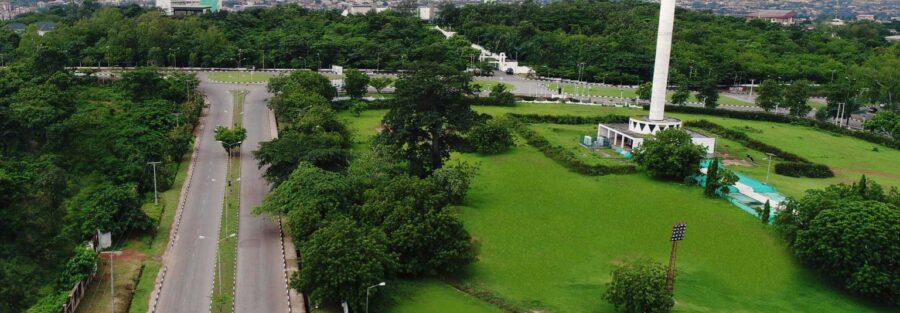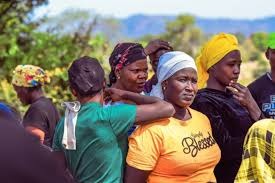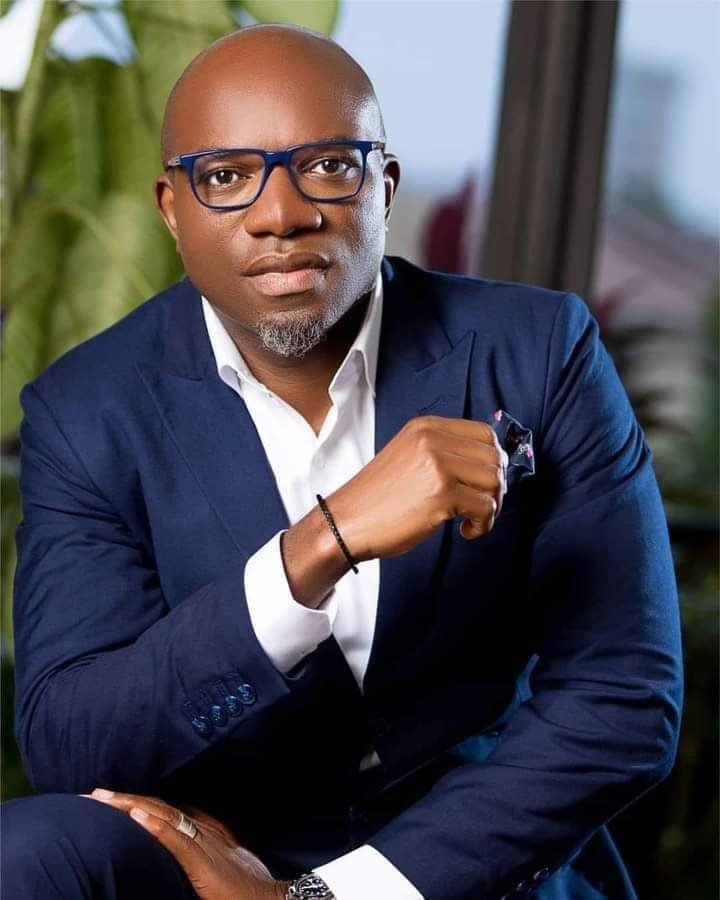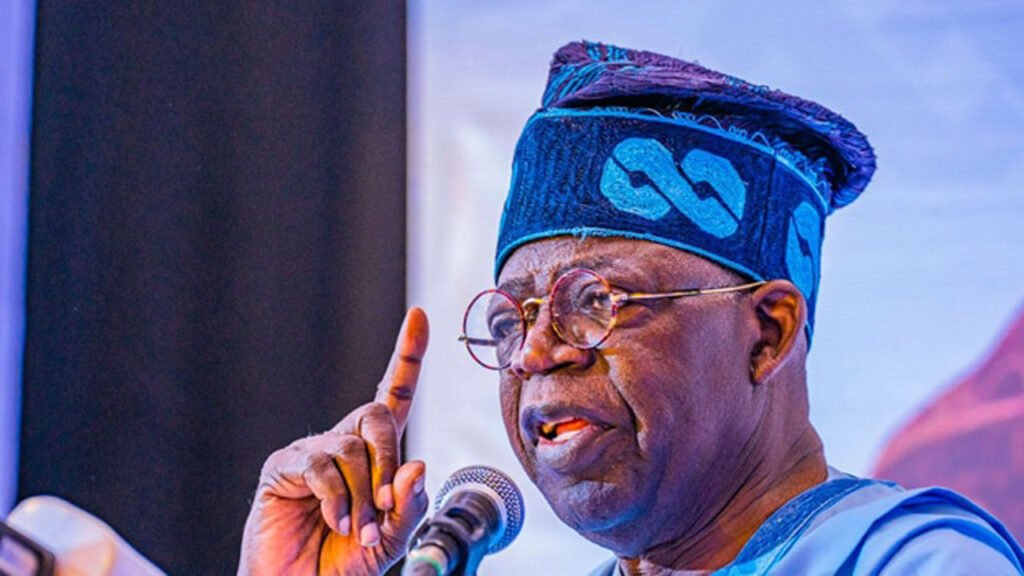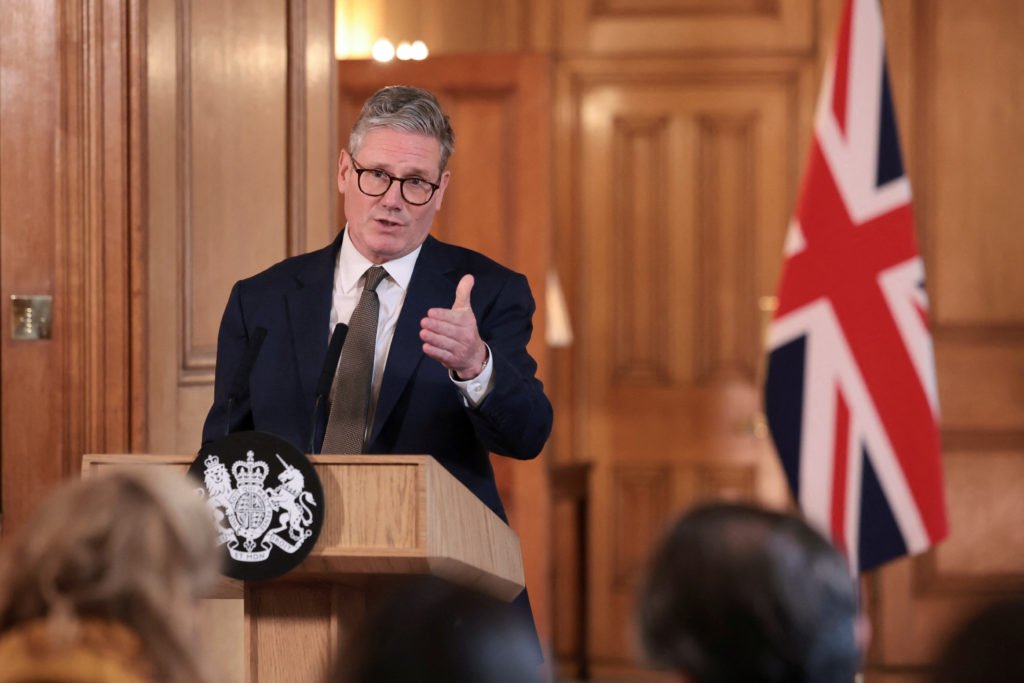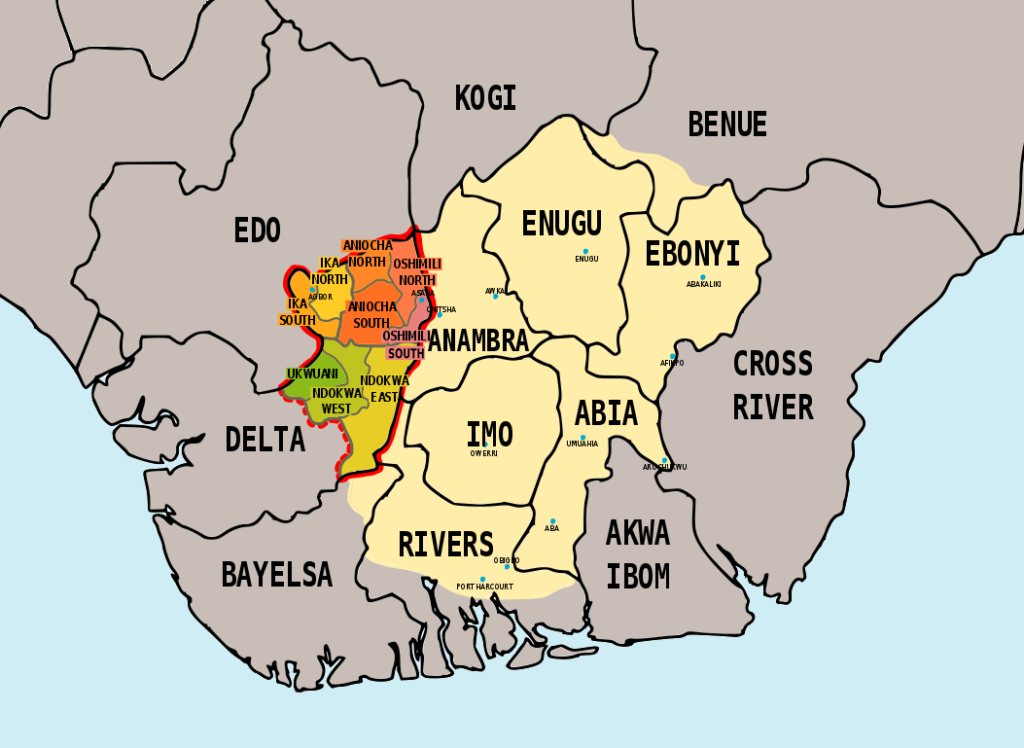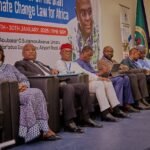Venue: International Conference Center, Enugu.
THEME: SECURING THE FUTURE OF ENUGU STATE – A STATE-LED ECONOMIC MODEL FOR UNLOCKING NIGERIA’S ECONOMIC FUTURE
Sub-Theme: “The Hilltop Spirit – From Legacy to Enterprise”
By Mr. George Agu, Group President, ActivEdge Technologies
15th November, 2025
I. A Foundation Forged in Necessity: Hilltop Club 1972 and the Enugu Proposition
Your Excellency, the Executive Governor of Enugu State, Dr. Peter Ndubuisi Mbah; the Deputy Governor, Barr. Ifeanyi Ossai; Our Club President, Chief Chidi Onovo; members of the National and State Assemblies present; members of the State Executive Council; our highly respected traditional rulers; captains of industry; our Patron and Board of Trustees; past Chairmen; sister clubs; members of the press; fellow brothers of Hilltop Club 1972 and our families – welcome!
We gather today under a theme that is both a vision and a mandate: “Securing the future of Enugu state: a state-led economic model for unlocking Nigeria’s economic future.” This ambitious framing recognizes that what we build here in the heart of Igboland has implications far beyond our state boundaries. Enugu’s emerging hydrocarbon prospects mark a pivotal moment of possibility rather than conclusion. The growing evidence of gas potential within the Anambra Basin—where Enugu plays a vital role—signals not just an economic opportunity but a national call to vision and preparedness. It challenges us to ask: as custodians of a proud legacy, are we ready to transform potential into progress and build a future worthy of our past?
My name is George Agu, and my personal history is linked with that of Hilltop Club 1972: I was born in its founding year of 1972. Sponsored by the committed Dr. Chilo Offiah, I joined in 2018, and I carry that privilege with deep gratitude. I see this synchronicity not as trivia, but as a signal. It marks my generation’s transition—from benefiting from the bold vision of our elders to now bearing the responsibility of stewarding that vision and building a legacy of progress for the next half-century.
Fifty years ago, in the uneasy quiet of a nation finding its footing after conflict, a group of men—civil servants, government employees—began to gather. There was no fanfare, for theirs was not a ceremonial mission but a necessary one, born in a military era shadowed by mistrust. They sought a sanctuary for dialogue, a space safe from the political currents of the time, and they found it here, in the heart of what was then the East Central State. This was the genesis of the Hilltop Club, an institution whose very founding was an act of quiet defiance and profound hope. Their conversations, rotating monthly between members’ residences, were not merely social; they were the careful, deliberate weaving of a new social fabric for a region in transition, a covenant to restore dignity and purpose through intellect and enterprise.
This collective would soon prove its mettle, playing a pivotal role in the very political evolution of the land, culminating in the triumphant creation of Enugu State in 1991—a victory celebrated at the palace of HRH Igwe Edward Nnaji, a gathering that united members and dignitaries like Alhaji Abulazeez Ude, whose private jet ferried members, symbolizing the reach and influence this fellowship could muster. This was, and is still, the club’s most outstanding signature success: the literal founding of a state while staying steadfastly apolitical.
But what is truly extraordinary, and what Mr Benji Ofungwu so passionately underscores, is what happened next. After achieving their primary raison d’être, they felt the need to continue. For 581 uninterrupted months—five decades—this club has met, driven by what can only be described as sheer altruism. As Mr Ofungwu poignantly notes, “There are no pecuniary or other stake holding interests in the club. There has been absolutely nothing to gain financially or otherwise from being members of the club. It is just out of sheer altruism that members remain in the club.” This longevity, where clubs and associations routinely falter, is a monumental achievement. We have remained happy to keep the club going and after 50 years, we feel that this calls for a celebration.
This legacy of unity and purpose was powerfully proven just before the last election. A quiet circular went round this club. Polite in tone but firm in purpose, it asked each member to return to his community and make the case—respectfully, lawfully, persuasively—for a candidate and a vision we believed would serve Enugu well. Men in their forties stood beside elders in their seventies and eighties; sons and mentors, colleagues and long-time friends found themselves side by side on the same village paths. It was not a noisy march; it was a discipline of care—doorsteps visited, arguments made with humility, and hope carried on trusted shoulders. The result we celebrate matters; but what truly endures is what it revealed: HILLTOP CLUB 1972’s capacity to move as one, to put state above self, and to demonstrate that love and unity can be strategy as well as virtue.
From these foundational moments, the Club evolved into a unique and powerful crucible of leadership, a non-political, non-religious bastion of brotherhood and mutual interest whose influence quietly shaped the trajectory of WAWA Land. Its monthly gatherings became an informal but critical forum where the future was deliberated, hosting a constellation of our finest minds. As documented by Chief Peter Emeka Aneke [Onye-Fee-Eze], this included:
· Legal luminaries like Chief John Edozie and Justice Anthony Aniagolu
· Industrial pioneers like Dr. Ejike I. Onyia, the first Nigerian MD/CEO of NLNG
· Technology innovators like Chijioke Simeon Agu, 1st Director of Data Processing at NEPA. Also Founder and Chairman of Computer Systems Associates Nigeria Ltd and Neptune Software Group (a multinational till date)
· Policy architects like Senator Ken Nnamani, former President of the Nigerian Senate
· Medical entrepreneurs like Dr. Dominic Ozoeze
This was a community that celebrated its own, as seen in the grand civic receptions in Lagos for prominent sons, yet also mourned its losses with equal depth, honoring members like Mr. Chris Eze and Dr. Charles Aniagolu. The introduction of the rallying cry “HILLTOP 1972!!” by Chief Nnaemezie Malo was more than a slogan; it was the crystallization of an enduring spirit of unity.
The Club’s enduring legacy, however, is encoded not just in its grand achievements but in its meticulous structure and profound commitment to mutual welfare—a model of governance and inclusive prosperity in microcosm. Guided by a clear constitution and managed by a dedicated Board of Trustees and Executive Committee, the Club exemplified transparency, financial integrity, and democratic principles long before they became buzzwords in public discourse. Its Group Life Assurance Scheme and endowment fund were tangible expressions of a community that cared for its own, providing a safety net for members in times of adversity and celebrating with them in times of joy. This carefully engineered ecosystem of trust and accountability, where leadership was chosen through secret ballot and financial membership was a prerequisite for participation, stands as a powerful blueprint. It demonstrates how state power, when reimagined through the same principles of security, innovation, and inclusive prosperity that the Club embodied, can transform from a distant, coercive force into a collaborative platform that empowers its citizens, fosters genuine connection, and builds a prosperous society from the ground up.
II. The Unflinching Mirror: Hilltop Club 1972 at a Pivotal Juncture
For half a century, the view from this apocryphal hill has been our inheritance. But I must ask you today, as we stand in the glow of this anniversary, what do we see? Do we see a landscape illuminated by the legacy we have guarded, or do we see the shadows of potential we have yet to light? We are the keepers of that covenant, but a covenant must be lived, not merely remembered. The time has come to ask, with the same courage as those first voices, whether we are honoring our past by simply preserving it, or by building upon it with the same daring they once possessed.
Today, we gather not merely to celebrate 50 years of the Hilltop Club 1972—a bastion of civic leadership, intellectual rigor, and cultural pride—but to chart a bold new course for our society. Our theme, From Legacy to Enterprise, is not just a slogan. It is a summons. A call to reimagine the architecture of state power—not as a relic of control, but as a platform for possibility.
The air atop this Enugu hill is thick not just with nostalgia, but with the weight of possibility. For fifty years, the Hilltop Club has stood as a monument to a certain kind of Nigerian promise—a symbol of leadership and influence. But this anniversary cannot be a mere ceremonial checkpoint; it must be a strategic launchpad. We are not here to polish a symbol, but to forge a new tool for national renewal. The challenge before us is to shift the narrative, irrevocably, from symbolic celebration to substantive impact. HILLTOP Club 1972 must now transform into a dynamic civic engine for generational stewardship, a convening power that brings together the voices—the policymakers, the entrepreneurs, the artists, the engineers and the artisans—who will shape the policy, enterprise, and ultimate transformation of our nation. This is our charge: to ensure that the next fifty years are not merely witnessed from this hilltop, but are actively directed from it.
The Intergenerational Handover: A Living Bridge Between Eras
The most profound testimony to our club’s health is the seamless intergenerational transition that Mr Benji Ofungwu highlighted. He noted a poignant reality: ‘Most of the founding fathers have all passed on… All the current executive members running the club were either not born or would be in their infancy when the club was formed in 1972.’ This is not a sign of weakness, but of incredible strength. It means the club is not a relic, but a living, breathing institution. The values were not buried with the founders; they were successfully transmitted. We are not merely standing on the shoulders of giants; we are their living progeny, tasked with extending their vision into a new century. This successful handover of the baton is our single greatest organizational achievement and the foundation upon which all future enterprise must be built.
Yet, as we stand at this pivotal juncture, celebrating fifty years of existence, we must engage in an act of profound and unflinching introspection. We must strip away the ceremonial gloss and interrogate the very soul of Hilltop Club 1972, not with the warm haze of nostalgia, but with the sharp, unforgiving light of clarity. For five decades, this institution has stood as a brotherhood of influence, a sanctuary forged in the crucible of the post-Biafra era by civil servants, academics, and entrepreneurs who sought to rebuild not just infrastructure, but identity and dignity itself. It has functioned as a quiet power bloc, its members—governors, Senators, ministers, CEOs—shaping policy from behind the scenes and mentoring generations in an unspoken curriculum of discipline, decorum, and duty. In an era of military coups and democratic fragility, it provided a bastion of continuity and a powerful engine of social capital, connecting Enugu’s brightest minds to national and global networks. But we must now ask ourselves with brutal honesty: in a world being radically reshaped by startups, social media, and decentralized power, is this venerable model still sufficient? Influence, we must concede, is not the same as legacy, and legacy itself is not a synonym for tangible, measurable impact.
The Civic Autopsy: From Validation to Creation
Our introspection must be a ‘civic autopsy,’ probing with unflinching honesty. We must ask why, with a membership that has included the architects of national industries and the framers of our laws, our most ambitious civic proposals have historically ‘gathered dust in government archives,’ as our own records show. The diagnosis is clear: we mastered the art of ‘civic validation’ but hesitated at the threshold of ‘civic creation.’ We became brilliant advisors to power but often stopped short of becoming direct architects of outcomes. The transition from Legacy to Enterprise is, therefore, a transition from being a respected audience to the drama of development, to becoming co-creators on the stage itself.
The undeniable achievements are there, etched into the careers of hundreds of mentees who now lead in law, medicine, and industry, and whispered in the halls of power where members have contributed to national plans and constitutional reviews. The club has provided crucial civic stability, mediating disputes and advising leaders in times of tension. But true achievement in the 21st century must be measured not merely in accumulated prestige or the strength of one’s network, but in demonstrable public value. It is measured not just by who we know, but by what we have built for the collective. This forces upon us a series of difficult, almost uncomfortable questions about our present identity. Has HILLTOP CLUB 1972, in its maturity, risked becoming an elite enclave, overly ceremonial and inward-looking, comfortably curated but cautiously insulated from the urgent, messy challenges outside its gates? Or does it retain the vitality to reimagine itself as a dynamic civic engine for public innovation? Is it truly a custodian of legacy, which implies active preservation, or is it ready to become a catalyst for change, using that legacy as a launchpad rather than a display case?
The evidence of this transition, or lack thereof, lies not just in abstract questions, but in a painful historical pattern. As the records from our club’s history reveal, Hilltop Club 1972 has, over the decades, funded and developed—with the relevant research and expertise of its esteemed members—detailed reports and proposals to facilitate the economic development of Enugu State. These were not mere suggestions; they were master plans. We presented a Gas Pipeline Master Plan for the Southeast, surveys and maps of hydrocarbon deposits, and a blueprint for making Enugu an oil-producing state. We proposed frameworks for ICT in education and healthcare, the transformation of Enugu into the industrial hub of the Southeast, and programs for affordable housing.
These proposals were duly submitted and formally presented to successive governments, only to be ignored or abandoned with no response. As Chief Aneke’s historical note reveals: “Politicians ignored the advisory recommendations of Hilltop Club, after they’d gotten into office… these suggestions and proposals were duly submitted and formally presented by Hilltop Club 1972, only to be ignored since the club was not a recognized stakeholder of the ruling political party, or abandoned somewhere along the way with no response or follow-up from the government.” The reason was clear, though unstated. Our altruism was our strength, but it also became our limitation in a politically charged environment. We were constrained to supporting only the projects we could afford from voluntary contributions, while our most transformative ideas gathered dust in government archives. This gap between our intellectual capital and political execution is the central challenge of our first fifty years.
Therefore, the pressing questions before us are these: Why, after fifty years of aggregating some of the most formidable intellects and resources in the region, does HILLTOP CLUB 1972 not have a dedicated vehicle to see its own visions realized? Why have we not been able to leverage our own blueprint, such as through TOPLAND ENERGY Nigeria Ltd—the omnibus hydrocarbon company the club itself established to participate in the very oil and gas activities we foresaw? These are not accusations but a call to conscience, a challenge to align our legacy with the pressing demands of the present and to learn from the lessons of our own history.
To grasp the soul of HILLTOP CLUB 1972 at this half-century mark, we must move beyond abstract principles and hold its legacy up to the light of its lived exemplars, a gallery of civic giants whose public triumphs and personal trials are inextricably woven into the club’s DNA. We can trace the arc of its journey—its zeniths, its unspoken tensions—through the symbolic lives of its pillars, a constellation of archetypes who embody the club’s founding ethos and challenge its contemporary conscience. First, consider the formidable presence of Justice Anthony Aniagolu, a Patron of the club, the jurist as moral architect. More than a legal scholar, he was a foundational pillar of Nigeria’s judiciary, whose journey from Eke to the Supreme Court bench exemplified intellectual gravitas.
His landmark judgments, such as in Ariori v. Elemo, entrenched constitutional rights to a fair hearing, and his stewardship as Chairman of the 1988 Constituent Assembly produced the 1989 Constitution—a democratic blueprint whose spirit outlasted its military abrogation. Within the hallowed discussions of HILLTOP CLUB 1972, he was the embodiment of institutional memory and civic ethics, a constant reminder that influence carried a profound responsibility to truth. His legacy now poses a piercing question to the club: in an era where judicial independence is often negotiated in shadows, does HILLTOP CLUB 1972 still cultivate jurists who defend the constitution with the same fearless conviction, or has the comfort of quiet influence muted its voice as the nation’s conscience?
Then we must consider the legacy of Chief C.C. Onoh, a figure whose formidable shadow and ideological affinity loomed large in the club’s formative ecosystem. Though not a formal member, his presence was felt through his deep associations with key founders and his embodiment of the club’s core values. Onoh was the politician as builder, a force of nature whose legacy is etched into the very map of the region. As Nigeria’s first indigenous chairman of the Nigerian Coal Corporation and a strategic board member of the Railway and Mining Corporations, he mastered the levers of national industry before being elected Governor of the old Anambra State. He represented the kind of raw, tangible capacity that the club admired and engaged with—the ability to translate ideas from thoughtful discussion into the steel and asphalt of progress. His archetype prompts the most urgent reflection for the present: has HILLTOP CLUB 1972 maintained its direct lineage to this breed of transformative, builder-style political leadership, or has it, over time, retreated into a state of ceremonial relevance, commenting on politics from the sidelines rather than shaping its core with the same foundational boldness required to harness our new oil and gas resources?
Completing this legal trinity is the profound intellect of Justice Augustine Nnamani, the philosopher in robes, whose work reshaped the very terrain of Nigerian law. As Attorney General, he was the intellectual engine behind the revolutionary Land Use Act of 1978, and his subsequent appointment directly from the Bar to the Supreme Court was a testament to his unparalleled legal acumen. His brilliant, often dissenting opinions and his defense of human rights under military rule cemented his status as a judicial oracle, a legacy recently honored in a 22-essay volume, Essays in Honour of an Oracle at the Pinnacle of Justice. As a patron of the club, Nnamani represented its deep intellectual and reformist core, challenging it to be a sanctuary not just for influence, but for groundbreaking thought. His life demands that HILLTOP CLUB 1972 now ask itself whether it still serves as a civic university for such legal and policy innovation, or whether it has settled for celebrating past brilliance rather than actively replicating it.
Beyond the bench, the club’s spirit of defiant advocacy was personified by Charles Abangwu, the statesman as unwavering voice. A former Deputy Speaker of the Eastern House of Assembly and Commissioner in the East Central State, Abangwu’s political career was legendary for its fearless challenge to the marginalization of the Wawa region. His open defiance and vocal politics, even when it placed him against powerful national figures, embodied a civic courage that refused silence in the face of injustice. His presence in the club’s early dynamics is a stark reminder that HILLTOP CLUB 1972 was conceived not as a polite social club, but as a platform for consequential and sometimes uncomfortable truth-telling. His legacy forces a confrontation with a modern timidity, questioning whether the club’s current posture prioritizes access and comfort over the principled defiance that once defined its contribution to regional equity.
The club’s ethos also found expression in the global cultural vision of Alhaji Abdulazeez Ude, the financier as intellectual conduit. Educated at Oxford and Columbia, Ude worked alongside Toni Morrison in New York before founding Nok Publishers, a venture that funded radical African literature and amplified the continent’s voice. His generosity, which extended to sponsoring students abroad and supporting pioneering media outlets like Newswatch, was not merely philanthropic; it was strategic nation-building. The use of his private jet to ferry members to a critical meeting at Igwe Edward Nnaji’s palace was a symbolic act of this commitment—leveraging private means for collective progress. Ude’s legacy challenges the club to interrogate whether it still operates as a platform for deploying cultural and intellectual capital at this scale, or whether it has become a closed circuit, celebrating its past networks without investing in new ideas and the minds that carry them.
This tapestry of influence is further enriched by the resilient pragmatism of Dr. G. Ene, the entrepreneur as bridge builder, whose survival of a harrowing kidnapping in 2011 underscored the very real risks of public engagement in contemporary Nigeria, and by the technical excellence of Dr. Ejike Onyia, the technologist as civic partner, whose work in the oil and gas sector represents the engineering backbone upon which grand visions must practically rest. Their lives, alongside the celebrated political triumph of Chief Ken Nnamani, who rose to the pinnacle of national governance as Senate President, complete a panoramic view of the club’s potential when operating at its zenith.
Taken together, these figures form a powerful pantheon against which the club’s present and future must be measured. They are a mirror, not a map; a reflection of what was, and a provocation for what must be again. The arc we see is subtle yet profound: a potential shift from being the nation’s conscience to seeking comfort, from championing visionary action to curating nostalgia, from being builders of institutions to being bystanders in an era that desperately needs construction. And yet, the potential is not extinguished; it simmers in the memory of these lives. The charge, then, is to consciously rebuild HILLTOP CLUB 1972 as a civic university for the next generation of Aniagolus, a venture studio for the next wave of Udes, and a think tank that can equip the next cohort of Onohs with the intellectual frameworks for modern statecraft. The club does not lack the blueprint; it possesses a living history of it, written in the judged laws, built infrastructure, and published texts of its members. The pressing question that hangs in the air during this anniversary is not whether it can reclaim this transformative mantle, but whether it possesses the collective will to do so. The transition from being curators of a storied past to becoming architects of a demanding future is the only work that truly matters now.
III. The New Dawn: From Apolitical Advisory to Embedded Partnership
The history I have outlined reveals a clear evolution—a necessary and transformative one. For its first five decades, HILLTOP CLUB 1972 was, as Chief Aneke’s records confirm, “A Socio-Cultural Association of top / senior civil servants, executives of parastatals and private sector, of ENUGU (northern East Central State) or ‘WAWA’ extraction, resident in Lagos; Purely apolitical; no record of commitment to any political party or persuasion, but ready to support any government that evolved.” Our influence was based on the power of our ideas, but as we have seen, those ideas often hit the wall of political reality.
Then came a pivotal shift—what Chief Aneke accurately describes as “Upgrading from Apolitical!!” As captured in the club’s records, “The influence of the arrival at Hilltop Club 1972 Lagos of the new generation of members was as dynamic, futuristic, strategic and timely. For the first time in her history some members expressed interest in contesting for political offices.” In a historic decision, the club agreed that while it would remain officially apolitical, it would support to the best of its capacity any member who secured a party’s nomination. This was a recognition that to truly shape the future of Enugu, we had to move from the sidelines into the arena. As Chief Aneke notes, “This was agreed to be the best way of participating in the political process and the candidates would enjoy the leverage of their membership of this esteemed club; members were committed to supporting members running for office through financial contribution, campaign efforts and exerting their influence on the electorate by physically going to their home centers and using proxies.”
The result of this courageous shift is the government we see today. His Excellency, Governor Peter Mbah, is a distinguished member of Hilltop Club 1972. His Chief of Staff, SSG, Chairman of Enugu Capital Territory Development Authority, Chairman of Enugu State Security Trust Fund and other key officials are members. This is not a coincidence; it is the culmination of a deliberate evolution. For the first time, the club’s vast repository of research, expertise, and altruistic passion has a direct pathway to implementation. The “seamless transition of executive governance” that Mr Ofungwu praised within our club has now found its parallel in the governance of the state. As Onye-Fee-Eze triumphantly records: “It was actually the arrival of a new dawn!”
This places a historic responsibility on both the government and the club. The government must now see HILLTOP CLUB 1972 not as a distant advisory body, but as an embedded partner, a “civic engine” ready to be deployed. The club, in turn, must evolve from a think-tank to a “do-tank.” The committees that Onye-Fee-Eze mentions—which have been set up to work out more areas to support the government—must be empowered with clear mandates. The proposals to enhance the club’s net worth and raise capital for partnerships must be pursued with urgency. As Onye-Fee-Eze concludes: “Hilltop Club 1972 Lagos and her members absolutely identify with this His Excellency, Dr. Peter Mbah led government and would pledge to do anything legally and morally possible within their power to be part of its success story.”
IV. The Foundational Pillar: Improved Security as the Bedrock of Prosperity
Any vision of transformation, no matter how grand, is a castle built on sand without the foundational bedrock of security. We have learned through painful, costly experience that security is not merely a matter of law and order; it is the most critical economic infrastructure a state can possess.
This understanding is not theoretical for HILLTOP CLUB 1972; it is a domain of active engagement. Over the years, members of our club have championed a number of security initiatives. At various points in the recent past, security discussions have dominated our meetings, leading to recommendations that were implemented across several senatorial zones of Enugu State and delivered significant impact. Targeted patrols and clearance operations have been conducted in Udi, Ezeagu, Oji River and other identified hideouts, applying sustained pressure on criminal elements seeking to destabilize the state. The relative peace we enjoy today is, in part, a product of these collective efforts. This partnership between civic initiative and state authorities exemplifies the collaborative security model we advocate—one in which informed community leadership complements formal institutions to safeguard lives, livelihoods and investment.
Governor Peter Mbah’s administration in Enugu has begun to operationalize this understanding, moving beyond a reactive security posture to one that proactively de-risks the entire landscape for investment and life. This is a holistic vision. It encompasses the tangible presence of community policing and digital surveillance, creating safe zones where enterprise can breathe. But it goes much deeper, into the very architecture of governance. It includes the implementation of transparent regulatory frameworks and the digitization of land records through the Enugu Geographic Information System (ENGIS), a masterstroke that attacks corruption at its root and provides certainty to property owners and investors alike.
Furthermore, the signing of Executive Order No. 003, which mandates service-level agreements across all Ministries, Departments, and Agencies, is a direct assault on the bureaucratic bottlenecks that have long stifled innovation. This is security in its broadest, most potent sense: securing not just a person from harm, but securing a business from capricious officials, securing an idea from being lost in a maze of red tape, and crucially, securing oil and gas infrastructure and investments from the vandalism and sabotage that have plagued our nation. As Ambassador Bianca Odumegwu-Ojukwu astutely observed, “Success lies not in Abuja or Lagos, but in how effectively our traders, manufacturers, and innovators can compete regionally.” They cannot compete if they are constantly looking over their shoulder, or buried under an avalanche of paperwork. This new model of security gives them that fighting chance.
While Enugu has witnessed appreciable security improvements through state-led initiatives, the persistent vulnerabilities in rural areas and emerging threats to economic assets demand a more robust and comprehensive security architecture. The recent pledge by the Federal Government, through Defence Minister Mohammed Badaru, to enhance security in the South-East acknowledges that “adequate security is vital for business prosperity.” This federal commitment must now be leveraged through strategic state and community partnerships to create a multi-layered security ecosystem that protects both persons and economic assets.
Across the South-East, community-led security initiatives have demonstrated remarkable efficacy in complementing formal security structures. In Ezeagu Local Government Area here in Enugu State, communities successfully organized vigilante groups to comb forests and bushes, systematically pursuing criminals from their territories and restoring safety for residents and farmers . Similar models have proven effective in Ngor Okpala, Imo State, where vigilante leader Kenneth Okechukwu Anyamele reported that his team has “cleared the bushes and moved around to make sure that our farmlands and bushes are safe” through coordinated surveillance and confrontation of criminal elements . These community-based approaches reflect the growing consensus among South-East leaders, including traditional rulers like Ezeogo Sunday Oketa of Nkaliki Unuhu autonomous community in Ebonyi State, who has publicly encouraged youths to “sanitize the forests and bushes and make them safe for farmers.”
Table: Strategic Security Initiatives Across South-East States
ASSETS TYPE
LOCATION
CAPACITY/FEATURE
DEVELOPMENT STAGE
Walter Smith Modular Refinery
Ohaji-Egbema, Imo State
5,000bpd (planned expansion to 50,000bpd)
Commissioned November 2020
Supertek Power Plant
Akwaete, Abia State
Targeting 1000MW
Development phase
This project has been announced but remains in early development. Reports confirm feasibility studies and investor interest, but construction is not yet advanced.
Geo-metric Power Project
Osisioma-Aba
Targeting 188MW
Up and running but not yet in full capacity
It is a long-delayed project now nearing commissioning.
Near completion, commissioning expected 2024–2025
Coal Resources
Enugu & Oji River
Previously powered regional industries
Requires modernization
Enugu coal was once central to Nigeria’s energy mix. The Oji River power station is defunct, and coal assets remain untapped pending modernization.
Strategic Recommendation: Enugu should institutionalize these community security efforts through a properly regulated, state-coordinated Community Guard System that provides standardized training, operational guidelines, and legal protection for vetted local security personnel. This system would formalize the ad-hoc community efforts that have proven effective while ensuring professional standards and accountability mechanisms.
Beyond community approaches, Enugu must strategically integrate technology and leverage federal security partnerships. The Minister of Defence has emphasized during his South-East visit that President Tinubu has directed “sustainable solutions to insecurity,” signaling openness to regional security innovations. Operation UDO KA, the Joint Security Task Force in the South-East, has developed robust strategies to ensure safe environments, particularly during peak periods like the festive season. Enugu should build on this foundation by establishing a Joint Security Coordination Centre that integrates surveillance technology, including AI-powered monitoring systems at critical energy infrastructure sites, with real-time intelligence sharing between federal security agencies and local security structures.
This technological integration extends seamlessly into the critical domain of emergency response. When every second counts, AI can analyze real-time traffic data, incident reports, and resource availability to optimize the dispatch routes of ambulances and police vehicles. The results from other nations are telling; the United Arab Emirates has leveraged such intelligent systems to achieve a 25% improvement in emergency response times, a margin that undoubtedly saves lives. As we push forward with our own national digitization efforts, including the crucial work of the National Identity Management Commission (NIMC), this AI-driven security layer becomes inextricably linked to the digital realm . Our financial platforms, e-governance services, and critical national infrastructure are increasingly coming under cyber-siege. Here, AI is our indispensable shield, capable of detecting sophisticated phishing campaigns, malware, and network intrusions in real-time, protecting not just our data but the very pillars of our emerging digital economy.
However, for this potential to be realized, we must anchor our ambitions not just in technology, but in governance and strategic leadership. The call from experts at the highest levels is unequivocal. As technology lawyer Timi Olagunju has compellingly argued, Nigeria’s AI future “needs to be a political and presidential priority,” a national consensus that cuts through bureaucracy and institutional inertia. The current approach, while laudable for its ministerial enthusiasm, remains piecemeal without the full weight of presidential authority and a coherent, nationwide governance framework. This was the lesson from China’s rise to AI relevance, and it is one we must heed. We must move AI from being a pet project of a single ministry to a cornerstone of our national security and economic strategy, championed from the very top to ensure the cross-departmental collaboration and sustained funding required for success.
This political will must be channeled into building tangible local capacity, for an AI strategy built entirely on foreign technology and expertise is neither secure nor sustainable. The Federal Government’s initiatives, such as the Nigeria Artificial Intelligence Research Scheme (NAIRS) and the National Centre for Artificial Intelligence and Robotics (NCAIR), are vital seedlings, but they must be watered with greater investment and connected directly to our academic institutions . We must actively partner with universities like the University of Nigeria, Nsukka, and hubs like Data Science Nigeria to cultivate a homegrown generation of AI talent, focusing not just on theoretical knowledge but on applied research that addresses our unique security challenges. This is our most potent opportunity; as Olagunju notes, while we may not compete in the upstream development of AI chips, Nigeria can lead globally in the downstream “talent stream”—in data annotation, AI-assisted services, and the development of context-specific solutions for our security, agriculture, and governance .
Of course, the deployment of such powerful technology must be guided by an unwavering ethical compass. The same algorithms that can predict a crime can also perpetuate societal biases if trained on flawed data. The surveillance that protects us can also oppress us if left unaccountable. As Olayemi Keri, an Independent Non-Executive Director at First City Monument Bank, recently emphasized, “Decisions about AI adoption are moral as much as they are technical,” and must be grounded in principles of fairness and ethics . We already have a foundation in the Nigeria Data Protection Act, but we must go further, developing a comprehensive AI regulatory framework that mandates transparency, ensures data privacy, and builds in robust human oversight. The Pan-African Parliament’s recent move to create a Model Law on AI Governance is a signal that the continent is awakening to this imperative, and Nigeria must not just follow but lead this charge .
Therefore, let our call from this Hilltop be clear and resolute. The integration of AI into our national security fabric is no longer a topic for future deliberation; it is a present necessity. It demands a grand, strategic handshake between the public and private sectors, a commitment to pilot these technologies in high-risk zones from Kaduna to parts of Enugu, and a relentless focus on ethical, human-centric design. By doing so, we can move towards a future where AI acts as a force multiplier for our security forces, a guardian of our digital frontiers, and a proactive sentinel against conflict, much like the AI-powered conflict early warning systems being explored for fragile states across Africa . Let us then wield this strategic lever with courage and wisdom, for in it lies the power to secure our people, stabilize our economy, and finally create the environment where the entrepreneurial spirit of our youth, so vividly embodied by innovators like Obinna Chimdi and the creators of BildUp, can truly flourish without fear.
V. The Engine of Growth: Unlocking Potential Through Oil and Gas
With this foundation secured, we can turn to the audacious architecture of economic growth. The vision to scale Enugu’s and the entire South East economy from its current $4.4 billion to a staggering $30 to $60 billion is not a politician’s empty aspiration; it is an operational blueprint, a detailed plan being executed upon. This is the state embracing its role as a lead venture capitalist, a market-shaper, and a strategic partner. The emerging hydrocarbon prospectivity of the Anambra Basin represents more than revenue; it is a historic opportunity to catalyze a state-led economic revolution that can serve as a model for Nigeria. Emerging geological assessments confirm the significant hydrocarbon prospectivity of the Anambra Basin, which spans parts of Enugu, Anambra, and Kogi States (Adeyemi et al., 2023). For Enugu State, the strategic opportunity lies in positioning itself as the leader in this emerging sector, championing transparency, robust local content policies, and community COMPACTS from the outset.
However, we must learn from the national experience to avoid the resource curse. This demands a state-led model that is not merely extractive, but transformative. The state must embrace its role as a strategic regulator, market-shaper, and equity partner. This means moving beyond mere royalty collection to active value-chain development. We must focus on:
1. Upstream De-risking: Creating a best-in-class regulatory environment that attracts major international operators while enforcing strict local content protocols to ensure technology transfer and skills development for our youth.
2. Midstream Infrastructure: The state must lead or incentivize investments in critical midstream infrastructure, such as modular refineries, gas processing plants, and pipeline networks. This not only captures more value domestically but also provides the feedstock for industrial take-off.
3. Downstream Industrialization: This is the ultimate prize. Gas should be leveraged as the fuel for industrial parks, providing cheap and reliable energy for manufacturing, agro-processing, and other industries. The state can establish petrochemical special economic zones, attracting industries that use our hydrocarbons as raw materials, thereby creating thousands of jobs and fostering a diversified economic base.
The recent enactment of the Enugu State Petroleum Products Regulatory Law marks a significant milestone, establishing a clear legal framework for the regulation and distribution of petroleum products within the state. This reform signals a deliberate effort to de‑risk the sector and provide certainty for investors.
Equally important is the work of the Enugu State Investment Development Authority (ESIDA), led by Dr. Sam Ogbu‑Nwobodo, which has pioneered the development of plug‑and‑play investment packages. As Dr. Ogbu‑Nwobodo has emphasized, “We present bankable investment packages that allow investors to hit the ground running”. These packages streamline entry for investors by reducing bureaucratic delays and offering ready‑to‑execute opportunities across key sectors.
The next frontier lies in tailoring this model specifically to the oil and gas ecosystem, ensuring that the same seamless, transparent, and secure pathways available in other industries are extended to energy investments. By combining a robust regulatory framework with investor‑friendly facilitation, Enugu State is positioning itself as a credible hub for petroleum product investment and broader energy sector growth.
The development of Enugu’s oil and gas resources must be conceptualized within a broader regional energy framework that leverages existing and planned infrastructure across the South-East. Notably, the South-East already hosts significant energy assets, including the Waltersmith refinery in Ohaji-Egbema, Imo State—currently the biggest commissioned modular refinery in Nigeria with an initial capacity of 5,000 barrels per day—which provides an instructive model for how Enugu might approach its own hydrocarbon development . This project, developed as a joint-venture between Waltersmith Petroman Oil (70%) and the Nigerian Content Development and Monitoring Board (30%), demonstrates the potential of strategically structured partnerships to advance regional energy objectives while creating substantial economic value.
Additionally, numerous gas-fired power plants and emerging energy infrastructure represent a transformative energy network that could underpin the reindustrialization of our region if properly integrated and scaled. Enugu’s strategic opportunity lies in positioning itself as both an energy producer and a strategic beneficiary of this regional energy ecosystem through targeted industrial policies.
Table: Existing Energy Assets in South-East Nigeria Table: Existing Energy Assets in South-East Nigeria
ASSETS TYPE
LOCATION
CAPACITY/FEATURE
DEVELOPMENT STAGE
Walter Smith Modular Refinery
Ohaji-Egbema, Imo State
5,000bpd (planned expansion to 50,000bpd)
Commissioned November 2020
Supertek Power Plant
Akwaete, Abia State
Targeting 1000MW
Development phase
Geo-metric Power Project
Osisioma-Aba
Targeting over 1000MW
Up and running but not yet in full capacity
Coal Resources
Enugu & Oji River
Previously powered regional industries
Requires modernization
Strategic Recommendation: Enugu should establish a Petrochemical Special Economic Zone that leverages its hydrocarbon resources potentials to attract energy-intensive industries, particularly in manufacturing, agro-processing, and related sectors where our region already demonstrates competitive advantages. This zone would mirror the industrial development vision of the earlier Eastern Region under Dr. Michael Okpara, who engineered what was acclaimed as “one of the fastest growing economies in the world” through conscious industrialization policy. This is the moment to revive the vision of TOPLAND ENERGY and the other master plans this club developed years ago, transforming them from concepts on paper into engines of growth and job creation.
The development of Enugu’s oil and gas sector must be pursued within a framework of comprehensive energy security, which academic research defines as “the uninterrupted, affordable, and sustainable supply of energy” . Nigeria’s broader energy challenges—including supply disruptions, outdated infrastructure, and over-reliance on fossil fuels—highlight the importance of constructing a diversified, resilient energy architecture from the outset . For Enugu, this means complementing hydrocarbon development with strategic investments in renewable energy and modernizing existing energy infrastructure, including potentially revitalizing the coal resources that once powered the Oji River power station and various industries throughout the region.
VI. The Human Capital Engine: Youth Empowerment in the New Economy
The third pillar of our sub-theme, Youth Empowerment, is the vital link that connects security and resource wealth to sustainable, inclusive prosperity. An economy powered by oil and gas and secured by technology is meaningless if it does not create meaningful opportunities for the over 70% of our population under the age of 30. This is both a moral and a mathematical imperative.
The story of Obinna Chimdi, the 18-year-old from Abia who built the groundbreaking ChatATP, is a powerful repudiation of complacency and a stunning validation of what is possible. From a landscape often characterized by a deficit of opportunity, he engineered a solution to a global AI limitation. His journey—coding in isolation, battling immense hurdles—is a painful microcosm of the “tragedy of success.” His genius was forced to operate in a vacuum, starved of the strategic scaffolding to amplify its impact.
Obinna Chimdi is the embodiment of the human capital that must be empowered. His success poses a brutal question to our existing institutions: Will we remain an audience to potential, or become a co-creator? We must evolve from a society that celebrates excellence from a distance to one that systematically builds the infrastructure of support—the capital, the mentorship, the network—that transforms solitary breakthroughs into scalable industries.
With Nigeria facing alarming youth unemployment rates, the imperative for decisive action is both economic and security-related. Recent data from the National Bureau of Statistics (2024) places the official youth unemployment rate (ages 15-24) at 8.4%, with the more telling NEET (Not in Education, Employment, or Training) rate at 14.4%. Analysts caution that these figures sit within a labour market where informal employment dominates, often masking widespread underemployment (ILO, 2025). Research consistently confirms that “frustration brought on by a lack of employment opportunities” creates conditions conducive to criminal activities and social instability . Consequently, youth empowerment constitutes not merely a social development objective but a fundamental security strategy.
Therefore, youth empowerment cannot be a standalone program; it must be integrated into the core of our state-led economic model. Across the South-East, state governments have launched various youth empowerment initiatives that provide valuable models for Enugu to adapt and scale. In Anambra State, Governor Chukwuma Soludo’s “1youth2skills programme” has trained thousands of young people in practical skills like furniture making, metal fabrication, aluminum fabrication, CCTV installation, confectionery, and leather works . The program’s distinctive approach includes phased training over eight months, monthly stipends during training, and startup capital upon completion—creating a comprehensive support ecosystem for youth entrepreneurs . In Abia State, Governor Alex Otti has focused on equipping youths “with the needed skills that would make them self-sustaining” through training in modern farming techniques and digital economy skills, including sponsoring 300 youths to complete training at the CSS Global Integrated Farms in Nasarawa State .
Table: Youth Empowerment Programs in South-East States
STATE
PROGRAMME
KEY FEATURES
TARGET BENEFICIARIES
Anambra
1Youth2Skills
8-month training, monthly stipends, startup capital
8,620 participants in second batch
Enugu
SME Matching Fund
N1b partnership with SMEDAN, grants to businesses
5,000 SMEs, 16,000 nano-enterprises
Abia
Cooperative Support Scheme
N1b disbursement, interest-free loans
10,000 persons in nano/micro businesses
Imo
One Kindred One Business (OKOBI)
Kindred-level businesses, government partnership
Over 150 registered cooperatives
Strategic Recommendation: Enugu should establish the “Enugu Youth Energy Academy”—a world-class institution developed in partnership with international energy operators, our universities, and the proposed Petrochemical Special Economic Zone. This academy would systematically train and certify thousands of Enugu youths as engineers, geologists, data analysts, and technicians for the energy value chain, creating a direct pipeline between youth development and strategic economic sectors. Furthermore, we must create a “Digital Security Corps,” recruiting tech-savvy young men and women to man and manage the AI-driven security infrastructure, turning them from potential security risks into frontline defenders of our collective safety.
Beyond specific skills training, Enugu must strengthen its support for Micro, Small, and Medium Enterprises (MSMEs), which constitute the lifeblood of our economy. Governor Peter Mbah has demonstrated commitment to this sector through the N1 billion matching fund partnership with the Small and Medium Enterprises Development Agency of Nigeria and the distribution of inputs and grants worth over N4.6 billion to farmers, communities, and IT startups . These initiatives recognize, as Entrepreneurship advocate Ephraim Okenwa notes, that “finance and building capacity remain a major challenge for MSMEs” which requires deliberate government intervention . The National Youth Council of Nigeria (NYCN) has complemented these efforts through programs like the Enugu Youth Business Support Grant and Students Meal Support programme, though their Deputy President Innocent Nduanya has appropriately called for state government expansion of these initiatives with “at least a N1 billion provision for youths’ empowerment and welfare.”
For the broader economy, the state’s focus on human capital, as seen in the Smart Green Schools initiative and the Enugu Education Transformation Plan (EETP), represents a fundamental pivot. We must ensure the next generation is not just literate, but digitally fluent, innovatively minded, and equipped with the vocational and soft skills needed to thrive in the economy we are building.
The recently launched Enugu Air is a powerful symbol of this integration, creating immediate youth employment in logistics, hospitality, and aviation services. This is the model: every state-led project must have a clear and direct youth empowerment and job creation component.
VII. The Artisan’s Covenant: Rebuilding the Dignity of Work
As we architect this future, we must confront an uncomfortable truth within our own elitism. HILLTOP CLUB 1972 is a vault of excellence—of jurists, entrepreneurs, and policymakers. But a society that celebrates the architect while forgetting the bricklayer is on a precarious foundation. We must ask: where are our artisans? The mechanics, masons, welders, and technicians?
There was a time when Enugu had a famous ‘Artisan Quarters’—a hub of dignity, skill, and community. Today, it is a relic, its history buried beneath the dust of neglect. We have professionalized ourselves into a disconnect, where the title ‘Engineer’ has become a prefix, not a reflection of hands-on practice. We traded sweat for status.
Therefore, any vision of inclusive prosperity must include an Artisan’s Covenant. No matter how advanced our AI algorithms become, it is the artisan who will install the solar panels, repair the drones, and build the smart cities. The future is not just digital—it is physical. We must invest in vocational training, dignify manual labor, and restore the Artisan Quarters in purpose, not just in name, making these skilled builders genuine civic partners in our state’s enterprise.
VIII. Conclusion and Call to Action: The Perpetual Engine
The integrated development agenda outlined in this lecture represents both a tremendous opportunity and a profound responsibility for Enugu State and the broader South-East region. By strategically connecting security, energy development, and youth empowerment within a coherent state-led framework, we have the potential to transform not only Enugu’s economic landscape but to provide a replicable model for subnational development across Nigeria.
The historic parallels are instructive—just as Dr. Michael Okpara’s visionary leadership in the 1960s established the former Eastern Region as one of the world’s fastest-growing economies through conscious industrialization policy, so too does our generation have the opportunity to architect a new era of sustainable, inclusive prosperity for our people
The enabling conditions for this transformation are now in place in a way they never have been before. We have a government led by one of our own, one that understands the Hilltop Club 1972 ethos. We have a club that has learned the lessons of its past and has consciously evolved its strategy. What remains is the strategic integration of these elements through visionary leadership, disciplined implementation, and the deep, trusting partnership between this government and this club. As the Honourable Minister of Defence emphasized during his South-East visit, “Without security, there can be no peace or development”—a principle that equally applies in reverse: without economic development and youth engagement, security remains fragile and temporary.
Your Excellency, the administration you lead has embarked on a courageous journey that reflects the aspirations embedded in our theme. The foundational work on security, the strategic moves in the oil and gas sector, and the focus on youth-centric initiatives demonstrate a clear-eyed commitment to a state-led economic model. For this, you deserve our commendation and our active partnership.
Let this 50th Anniversary be an occasion not only for applause but for a renewed covenant. HILLTOP CLUB 1972, with its vast experience across the breadth of the economy—from the legacy of coal to the promise of oil, from public service to private enterprise—stands ready to support this administration with the same unity and discipline we have shown for five decades.
The door to a transformative partnership is open—both ways. We are ready to descend from this Hilltop of words and begin the deliberate, arduous, and glorious work of building in the valley where our people live, work, and dream.
So, let us be unequivocal. The ‘velvet rope’ of elite association must be replaced by the ‘digital router’ of open innovation. Our value is no longer in guarding the gate, but in building more gates, ensuring they swing open for every Obinna Chimdi with the talent to walk through. This is the democratization of influence.
Let us also become the strategic authors of a new counter-narrative. We must weaponize our stories of success—the Abia teen, the Enugu startup—and create a relentless drumbeat of proof that replaces the dominant narrative of lack.
And let us be bold enough to decentralize opportunity itself, investing in a network of ‘smart towns’ so that a young person in Akpugo or Afikpo can compete for global contracts as effectively as someone in Enugu or Lagos. This is about re-wiring the very neural network of our economy.
To end, I urge us to descend from this symbolic hilltop, not with the quiet satisfaction of a legacy preserved, but with the determined urgency of a mission launched. Let us industrialize our influence, productize our networks, and operationalize our values. The next fifty years will not be written by those who remember the past, but by those who build the future. Let us ensure that HILLTOP CLUB 1972 is not merely remembered for what it was but celebrated for what it made possible.
Let us become the perpetual engine that transforms the potential of our people into the power of our nation.
Thank you.
Dalụ nu!
George Agu | Group President | ActivEdge Technologies
15th November 2025
Enugu, Nigeria
References And Bibliography
· Abia Govt Disburses ₦1bn Cooperative Support Scheme – Guardian Nigeria:
· Abia Govt Sponsors 300 Youths for Training at CSS Global Farms – Daily Post:
· Adeyemi, B., Jolayemi, O., & Alimi, T. (2023). Hydrocarbon prospectivity in the sedimentary basins of southeastern Nigeria. Journal of Petroleum Science and Engineering, 205, 108534.
· Afrexim Bank – Financing Geometric Power Aba IPP.
· Afrexim Bank. (2024). Project Gazelle: Supporting Nigeria’s Power Infrastructure. [Press Release].
· Anambra Govt Empowers Youths with Skills, Startup Capital – The Sun.
· AP News – Business & Labour coverage (for NEET statistics reference).
· BusinessDay – Afreximbank signs $50m financing for Aba IPP.
· Didei, A. & Ajaegwu, A. (2024). Modeling hydrocarbon generation in the sedimentary basins of Nigeria. Petroleum Geoscience Review, 30(2), 210-230.
· Driving Economic Growth Through Youth Empowerment in Nigeria. (2023). Futurize. Retrieved from:
· Economy of Nigeria. (2024). Wikipedia. Retrieved from:
· Enugu, a city built on coal. (2021). Things Nigeria. Retrieved from:
· Enugu Govt, SMEDAN Launch ₦1bn SME Matching Fund – Daily Post.
· Enugu State: A Rising Economic Powerhouse Under Governor Peter Mbah.
· Enugu State Investment Development Authority (ESIDA) Unveils Plug‑and‑Play Investment Packages – ThisDay.
· Fidelity Bank Partners with YEIDEP. (2025). Fidelity Bank. Retrieved from:
· Financial Energy Review – Waltersmith refinery expansion.
· GEM Wiki – Energy project database. https://www.gem.wiki/is
· Geometric Power – Commissioning of Aba IPP, Feb 2024.
· Geometric Power Limited. (2024). Commissioning of the Aba Integrated Power Project. [Press Statement].
· Global Energy Monitor – Energy project database.
· Hilltop Club 1972 backs Enugu Governor’s giant strides. (2025). The African Gong. Retrieved from:
· Hilltop Club drums support for South-East presidency. (2022). News Diary Online. Retrieved from:
· Insecurity: Take control of forests, farmlands in your communities – South East leaders task youths.
· Insecurity: Take control of forests, farmlands in your communities, SE leaders task Igbo youths.
· Insecurity in South-East: Community Leaders Urge Youths to Reclaim Forests and Farmlands.
· International Labour Organization (ILO). (2025). Multi-Stakeholder National Public Dialogue for Institutionalizing TVET and Apprenticeship Systems for Sustainable Employment and Employability in Nigeria. [Report].
· InvestAdvocate – Aba IPP commissioning.
· Mbah and the Making of New Security and Infrastructural Architectures in Enugu State.
· Mbah moves to strengthen security in Enugu, restructures forest guard.
· Mbah Signs Enugu State Petroleum Products Regulatory Law – Vanguard.
· Mbah, Odumegwu-Ojukwu urge reforms to boost SMEs, deepen ECOWAS regional trade.
· Nairametrics – NBS unemployment methodology and youth labour data.
· National Bureau of Statistics (NBS). (2024). Nigeria Labour Force Survey: Q1 2024.
· News Verifier – Waltersmith modular refinery capacity and expansion plans.
· News Verifier. (2024, November). Waltersmith Refinery Expansion On Track for 2025.
· Nigeria Economic Outlook. (2025). PwC Strategy&. Retrieved from:
· Nigeria Geological Survey Agency. (2001). Geology of parts of southwestern Nigeria: Explanation of the 1:250,000 sheets Nos. 59 and 68. Bulletin No. 31.
· Odumegwu-Ojukwu, B. Public Address on Regional Economic Development. Enugu, Nigeria.,
· Odumegwu-Ojukwu Advocates Regional Integration, SME Empowerment at ECOWAS Trade Workshop.
· Otti: Abia Youths to be Equipped with Modern Farming and Digital Skills – Guardian Nigeria:
· President Buhari Commissions Waltersmith Modular Refinery in Imo State – NCDMB.
· Punch (Nigeria).
· Punch Newspapers – Experts on untapped gas potential in Anambra Basin.
· Sam Ogbu‑Nwobodo: ESIDA Will Present Bankable Investment Packages – The Sun.
· ScienceDirect – Hydrocarbon prospectivity of the Anambra Basin.
· Soludo Flags Off 1Youth2Skills Programme in Anambra – Vanguard.
· South East crises: Flush Out Criminals, Take Back Our Farmlands — Leaders Tell Youths.
· TheCable – Explainer on new NBS methodology.
· TheCable.
· Top 10 Highest Generating Revenue States in Nigeria (2025). (2023). Nigerian Queries. Retrieved from:
· Uzodimma Launches One Kindred One Business Initiative (OKOBI) – Leadership News:
· Waltersmith Modular Refinery Begins Production in Imo State – Premium Times.
· Waltersmith Refinery: A Model for Modular Refinery Development in Nigeria – The Guardian.
George Agu, a member of Hilltop 1972 Club since 2018 is a serial founder–operator and panAfrican technology executive with 25+ years across core banking systems, enterprise applications, fintech, cybersecurity and AIpowered e-government services. He leads ActivEdge Technologies (a pan-African IT solutions provider and systems integrator) , founded PayEdge (an MSMEfocused supplychain finance marketplace), launched Introspec (a payments settlement and reconciliation platform used by banks in 15+ countries), and created HarmonyEdge—an AI platform for egovernment now piloting at national scale. Earlier at Neptune Software he rose to MD/Chief Executive for West Africa, championing the Equinox and Orbit corebanking platforms. George holds a B.Sc. in Computer Science & Statistics, is CISA and CISM certified, and is an executive education alumnus of Wharton School and London School of Economics.
He serves on the Abia State Global Economic Advisory Council (Sector Committee Chair), the board of TN Cybertech Bank (Chair, Technology & Strategy), chairs the African Bar Association Business Roundtable, and is Deputy President of the South East–South South Professionals. He speaks at industry-leading events on fintech, cybersecurity, GRC, AI in finance and government, and digital transformation. George is married with five children and can be reached at georgeagu@activedgetechnologies.com.
